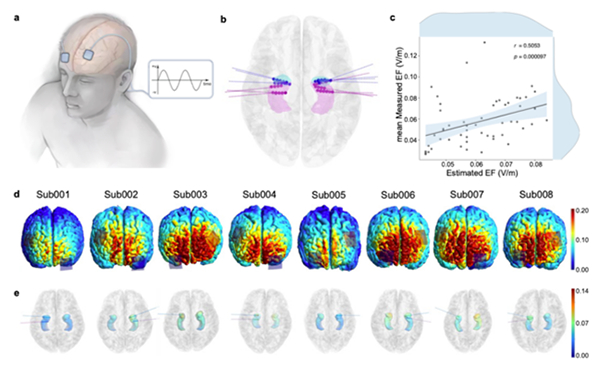

The frontal lobe tACS regulates intracranial neural oscillatory
activity
Under the support of the National Natural Science Foundation of China
(approval number: T2394535, T2394533), researcher Yuan Tifei and professor Xu
Jiwen of Shanghai Jiaotong University, associate researcher Liu Quanying of
South University of Science and Technology, and researcher Wei Pengfei of
Shenzhen Institute of Advanced Technology of the Chinese Academy of Sciences
have cooperated to make progress in the research of non-invasive electrical
stimulation specific regulation of brain function. The related achievement is
titled "Frequency specific and state dependent neural responses to brain
stimulation" and was published in Molecular Psychiatry on January 20, 2025. The
article link is: https://www.nature.com/articles/s41380-025-02892-7 .
Neuromodulation (brain stimulation) technology can regulate the
transmission and processing of electrical signals in the brain through different
types of physical fields, and produce sustained effects. It has become the
mainstream non pharmacological treatment for clinical psychiatric disorders.
However, the regulatory effect of non-invasive electrical stimulation on deep
brain regions is still unclear, which is an important bottleneck restricting the
development and precise application of clinical neural regulation technology.
The research team analyzed the response patterns of deep brain regions to
external physical fields by constructing a research system that combines
non-invasive electrical stimulation with synchronous acquisition of intracranial
neurophysiological signals; Calculated the cortical electric field simulation
model when applying non-invasive alternating electrical stimulation (tACS) to
areas such as the prefrontal cortex; Revealed the specific filtering pattern of
the brain in receiving and transmitting external physical field stimuli. This
study provides the first evidence that non-invasive electrical stimulation can
accurately regulate the function of deep brain regions, providing theoretical
support for the development of clinical precision diagnosis and treatment plans
for brain diseases such as Alzheimer's disease and depression.